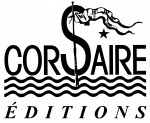THE EUROPEAN PRIZE FOR LITERATURE 2016 is awarded to JAAN KAPLINSKI (ESTONIA), born in 1941 in Tartu, for the totality of his work as a poet, a novelist, a dramatist, a novelist and a writer of essays.
Jaan Kaplinski is the 11th Laureate since the creation of the European Prize for Literature in 2005. Previous recipients of the Prize are : 2005, ANTONIO GAMONEDA (Spain) • 2006, BO CARPELAN (Finland) • 2007, TADEUSZ RÓŻEWICZ (Poland) • 2008, TANKRED DORST (Germany) • 2009, KIKI DIMOULA (Greece) • 2010, TONY HARRISON (Great Britain) • 2011, DRAGO JANČAR (Slovenia) • 2012, VLADIMIR MAKANINE (Russia) • 2013, ERRI DE LUCA (Italy) • 2014, JON FOSSE (Norway) • 2016, JAAN KAPLINSKI (Estonia)
The idea of a European Prize for Literature is both simple and bold : to contribute to a better mutual understanding of the peoples of Europe through the iconic personalities of their contemporary culture, those who today like Victor Hugo in his time are a living symbol thereof. It is by putting a face on each European country, that of its most famous contemporary writer, that our countries will best be able to respect, and to understand each other.
Every year the European Prize for literature honours for the entire body of his, or her work a European writer of international stature, with the view to highlight in a highly symbolic venue the cultural importance of Europe. The award is based on criteria of quality and of exemplarity, which are as demanding as those for the Nobel Prize for Literature.
Jaan Kaplinki studied linguistics in Tartu University. He has worked as researcher in linguistics, sociologist, ecologist and translator from several languages into Estonian. Interested in Celtic mythology and languages, American Indians and classical Chinese philosophy and poetry.
During the perestroika and Estonian national revival he was active as journalist both at home and abroad. 1992 - 1995 deputy of the Estonian Parliament (Riigikogu). He has lectured on history of Western civilization in Tartu University. Published several books of poetry and essays in Estonian, Finnish and English. Has been translated also into Norwegian, Swedish, Latvian, Russian and Czech.
Influenced by Western modernism (Rimbaud, Eliot, Pound) and classical Chinese poetry he has also translated, mainly poetry from French, English, Spanish, Chinese and Swedish (a volume of poems by Tomas Tranströmer). Travelled in many countries, including China, Turkey and parts of Russia. Member of several learned societies and the Universal Academy of Cultures headed by Elie Wiesel.






